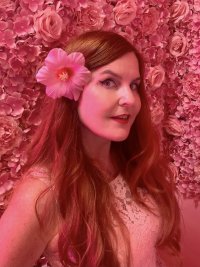Cassandra Atherton

Cassandra Atherton is a poet and scholar. She is Professor of Writing and Literature at Deakin University. She was a Harvard Visiting Fellow in English and a Visiting Scholar in Comparative Culture at Sophia University, Tokyo. She is writing a book of prose poetry on the atomic bomb with funding from an Australia Council grant.
Ben Ball was born in Melbourne in 1970. He grew up in London, New York, and Sydney, and went to school in all of these places. He completed an Arts/Law degree, in Australia, ‘more or less entirely to create the pleasing symmetry B. Ball, BA, LLB’. In the United Kingdom he undertook an M.Phil in Contemporary English Literature. Ball worked in London in publishing for more than a decade, with Bl ... (read more)
Voices of the dispossessed appropriate the narratives in the current issue of Westerly. The fiction in this issue is the strongest section, largely due to the originality and diversity of the writing. M.T. O’Byrne’s magic-realist short story, ‘The Day Before Christmas Island’, introduces the voice of the refugee. Reminiscent of Life of Pi (2001), the narrator and Thommo ‘pull a boy from ... (read more)
Granta’s recent offering, a special edition devoted to Japan, is a brilliant homage to Japanese wabi sabi. Editor Yuka Igarashi has selected stories and artwork that challenge the tired stereotypes of Nippon to deliver a series of powerful works exploring wabi sabi’s investment in what Andrew Juniper has identified as ‘impermanence, humility, asymmetry and imperfection’.
... (read more)
William Carlos Williams once famously stated, ‘No ideas but in things’, about his poetic method. Rose Lucas, in her first poetry collection, Even in the Dark, takes up the imagist movement’s poetic style but ‘makes it new’ in her examination of the role of the poet in both the local environment and abroad. Her observant and mimetic style shimmers in a collage of confronting still-life po ... (read more)
The Kantian epigraph to this issue of Island points to an exploration of the island as ‘the land of truth’, with the ocean around it as ‘the native home of illusion’. In this way, the translation of experience, both real and imagined, is navigated in clever and topical ways. The emphasis on ‘island’ as a micro-metonym for Tasmania demonstrates that while there are changes afoot at Isla ... (read more)
A polyphony of voices in Antipodes offers readers a textured view of literature from Australia and New Zealand. Contributors to this biannual journal are Australianists from all over the world. This globalisation is perhaps best evidenced by the inclusion of critics from Portugal, Slovenia, Lebanon, and Austria, writing incisively about Gail Jones, Indigenous poetry, Australian Lebanese writers, a ... (read more)
The camera ottica in the epigraph to Hotel Hyperion alludes to Lisa Gorton’s artful play with shifting perspectives in this luminescent collection of poetry. The reader is invited to put her eye to the lines of poetry as if to a Galilean telescope or ‘perspective tube’. By looking at the poems through the peephole as an optic chamber, the reader brings the larger concerns of time and space i ... (read more)
Australian Poetry Journal, the flagship publication of Australian Poetry, contains a veritable who’s who of Australian poets. However, this doesn’t mean that the journal is part of the poetry gangland to which some other contemporary Australian journals belong. This is a testament to editor, Bronwyn Lea, who must disappoint many poets – possibly even poet friends or acquaintances – in orde ... (read more)
Sonya Hartnett’s début as editor of The Best Australian Stories is marked by a series of fictions about dysfunctional families, eccentrics, and misfits. The homeless, lonely, disenfranchised, intellectually disabled, sick, afflicted, even the dead, are featured alongside the privileged, rich, and famous in a macabre mardi gras. Readers familiar with Hartnett’s writing will recognise many of h ... (read more)
